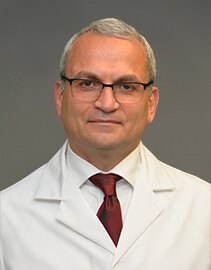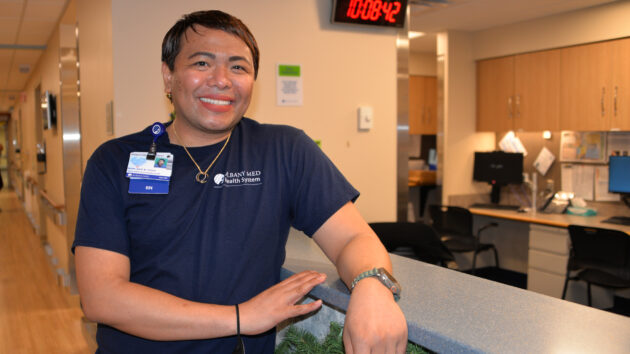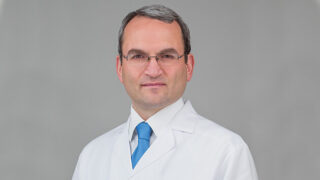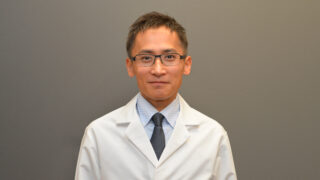Long History of Excellence for Capital Region Residents
Albany Medical Center's transplant program has a long history of experience and expertise at every level, with physicians who specialize in kidney transplants. Since 1969, our kidney transplant program has received numerous accolades and is among the top-ranking programs in the nation. We take a collaborative multidisciplinary approach to caring for transplant recipients to achieve successful outcomes for our patients and provide support, before, during and after a transplant.
We have performed close to 3,000 kidney transplants.
In addition to our long history of expertise, we offer:
- Collaboration among medical specialists
- Excellent outcomes in recipients of organ transplants
- Dedicated transplant unit and staff
Caring For You Throughout The Transplant Process
Albany Medical Center’s multidisciplinary approach to the care of transplant recipients is a close cooperative effort among surgical, anesthesiology, nephrology, endocrinology, infectious disease, and social work specialists. In addition, there is a dedicated transplant unit providing focused expertise. Our successful outcomes reflect the seamless coordination of care, years of experience, and expertise provided by the many providers who treat patients before, during, and after their transplant.
Getting Started
If your physician or dialysis staff feel you may be a candidate for transplant, you should call 518-262-8945 to speak with our coordinators and receive more information about the process. Before a formal evaluation appointment, you must complete any necessary tests and attend an educational seminar. Test results can be forwarded via fax at 518-262-5571.
The Educational Seminar
You must attend an informational seminar with our pre-transplant coordinator and social worker to learn what you need to do to start evaluation, what is involved in surgery and after care, and what options are available. The seminar is typically held the third Sunday of each month and is 3 to 4 hours long.
Tests
A coordinator will contact you about tests and other arrangements after you attend the seminar.
Formal Evaluation
Once the initial testing is completed you will be scheduled for your formal evaluation. You will meet with your surgeon, coordinator, social worker, financial coordinator, and dietician, who will discuss the results of your tests, assess your social and emotional needs, assist you with required documents and insurance requirements, and go over your nutritional needs.
Review
Your case is reviewed at our next scheduled candidate review meeting, and you will be contacted about any additional requirements or appointments.
Patients being considered for a kidney transplant must complete a comprehensive medical and psychosocial evaluation. Patients must be healthy enough for transplant surgery and follow-up.
Patients eligible for transplant are placed on a donor list for our region. When a match comes from a donor who has died, patients are called on short notice for a transplant.
A match can also come from someone who chooses to donate a healthy kidney, called a living donor. More than 500 family members and friends have donated a kidney to a loved one at Albany Medical Center in the past 40 years.
A successful kidney transplant may allow you to live a longer and more normal life. In most cases, patients will remain on immunosuppressant drugs which take strict monitoring.
View our transplant surgery educational videos.
Donating a kidney to someone you care for is one of the greatest gifts. We view living donation with the utmost respect and have a strong commitment to the safety and wellbeing of every potential donor in our program.
What are some of the advantages of living donors vs. cadaveric donor transplants?
- Decreased incidence of kidney rejection due to similar genetic backgrounds.
- Immunosuppressive drug doses may be lowered sooner and thus possibly lessen the side effects of the medications.
- Convenient scheduling. This may permit the recipient to shorten their time on dialysis or avoid dialysis completely. The wait for a cadaveric kidney usually takes several years.
- Immediate function of the transplanted kidney. Occasionally, a cadaveric kidney may not function for days or weeks after being transplanted and the recipient will require dialysis in the interim.
- The possibility exists of obtaining a perfectly matched kidney from a sibling which has proven to be the best for long-term success.
- Albany Medical Center also offers the option of robotic nephrectomy (the surgery to remove the kidney), which may lead to shorter hospital stays for the donor and enhanced recovery.
Chief of Transplant Surgery
 Rauf Shahbazov, MD, PhD, is the chief of the Division of Transplant Surgery at Albany Medical Center, and the Neil Lempert Endowed Chair in the Department of Surgery.
Rauf Shahbazov, MD, PhD, is the chief of the Division of Transplant Surgery at Albany Medical Center, and the Neil Lempert Endowed Chair in the Department of Surgery.
Dr. Shahbazov completed a fellowship in transplant surgery at the University of Virginia Medical Center in Charlottesville, Va., a transplant research fellowship at Baylor Transplant Institute in Dallas, and a transplant surgery fellowship at Baskent University in Ankara, Turkey. He completed general surgery residencies at King Faisal Hospital in Al-Taif, Kingdom of Saudi Arabia, and Clinical Hospital #5 in Baku, Azerbaijan. He received his medical degree from Azerbaijan Medical University, also in Baku.
Dr. Shahbazov previously worked at Upstate Medical University in Syracuse, where he served as the director of the Living Donor Kidney Transplant Program, surgical director of Pancreas Transplant Program, and the director of the Robotic Surgery Program.
Dr. Shahbazov is a fellow of the American College of Surgeons and European Board of Surgery as well as a member of numerous professional societies, including the American Society of Transplant Surgeons and the American Medical Association. He has authored or co-authored dozens of publications in professional journals and authored a chapter on Living Donor Liver Transplantation in the book Transplantation Surgery. He is fluent in English, Azerbaijani, Russian, and Turkish, and is proficient in Arabic.
See our providers and locations in the Get Care section of this page.
Contact Us
To learn more about the kidney transplant program at Albany Medical Center, call 518-262-5614.
Kidney Transplant Program
47 New Scotland Ave.
Albany, NY 12208




